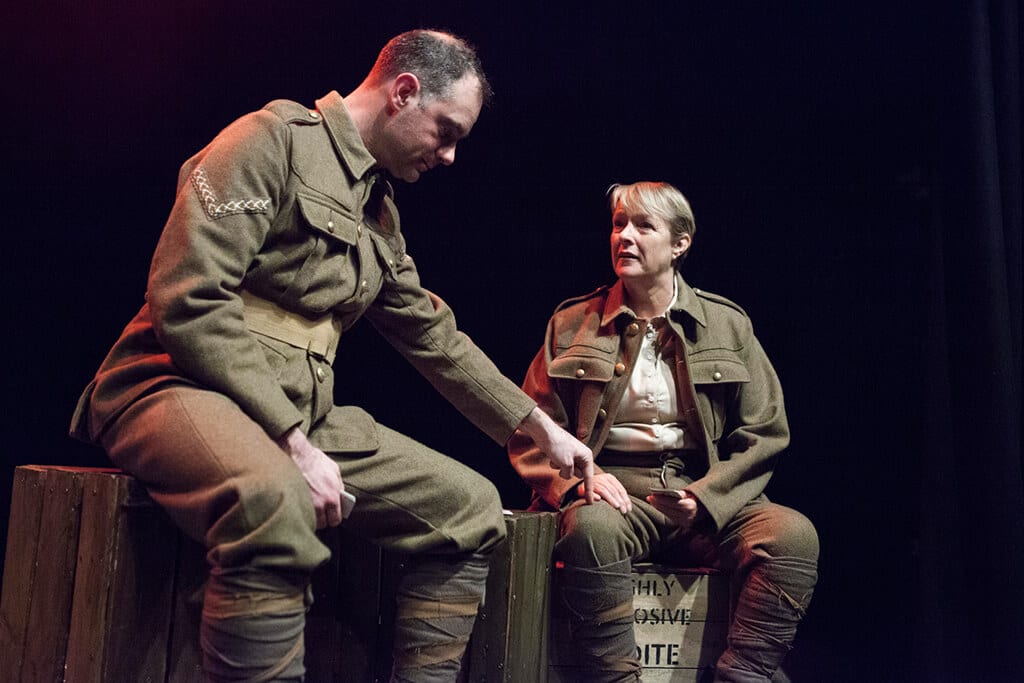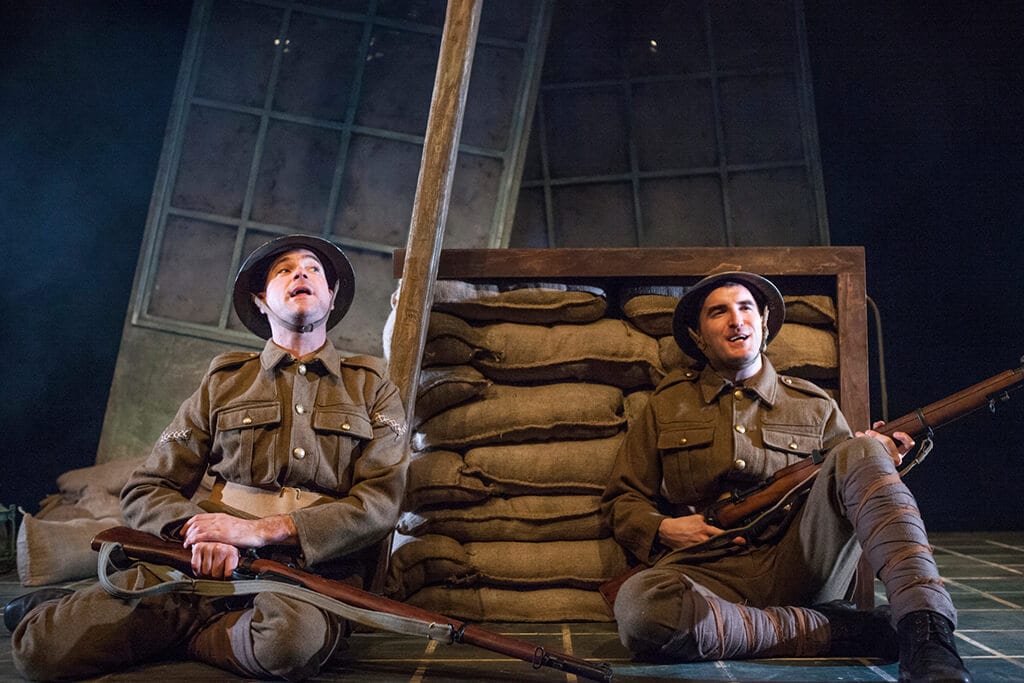This short, gripping, engrossing play is all about trying to speak out and being silenced.
We come in to the theatre to the sounds of old recordings of popular songs such as ‘Daisy Bell’ and ‘”Oh! It’s a Lovely War’ (which introduces the WW1 background and nods to the hard-hitting Joan Littlewood musical which took its title from that tune), then immediately switch to a later setting as the play opens, Patsy Cline’s accompanying ‘Sweet Dreams’ emphasizing the time shift.
Dorothy Lawrence (Penelope Freeman) is a long term resident of Colney Hatch Lunatic asylum, cared for by nurse May (Suni La), with whom she has a close, bantering relationship. Prompted by the death of a suffragette, Dorothy starts to reminisce about her own role in the movement as a journalist when, disguised as a man, she managed to become a soldier on the Western Front in order to report back on the suffering undergone in the trenches first-hand.
Penelope Freeman doubles-up as the younger Dorothy as the memory play unfolds, while fellow comrades-in-arms (Shura, played by Simon Balcon, and McCormack, played by Gareth Turkington) remain oblivious to Dorothy’s true identity. Suni La also appears in the earlier period as brothel madam Monique, who serves as a key confidante for the troops in lighter moments, and also verbalises a different form of oppression – the ongoing exploitation of countless young women to service the men – which war creates. An early scene in which the older Dorothy addresses May as ‘Monique’ highlights the fact that this action is taking place via reminiscences, modern events and situations intercutting with the war details, but also causing us to question whether or not these types of events and attitudes are really as ‘in the past’ as they seem
Though the play is only just over an hour long, and thus some of the scenes need to be broadly representative and fast-paced to push the action along, the interplay of the performers never feels rushed or forced. And while there is a clear message from Julie McNamara and the Vital Xposure team regarding oppression and injustice, this is not just polemic, the key strength of the writing and acting being the relationships which develop between the characters, the quieter moments amid the carnage. Though the soldiers and Monique could have been played as ‘types’, they are real people, with their own flaws as well as strengths, and this most comes across in their verbal sparring and joking together, and through the frequent bursts of singing, which spoke of the hurt and loss suffered by so many, the music giving them voice. There is a deeper pain and melancholy here amidst even the most ribald of tales.
Dorothy eventually falls foul of the military authorities, which leads to her permanent hospitalization back in Britain. And though ultimately her story is a sad and desperate one, causing feelings of anger at her fate, and debate as to how far we have moved forward since, there is hope at the play’s end that her memory will live on, as it continues to do through this impressive and entertaining work, which is full of heart, and wonderfully realized.



